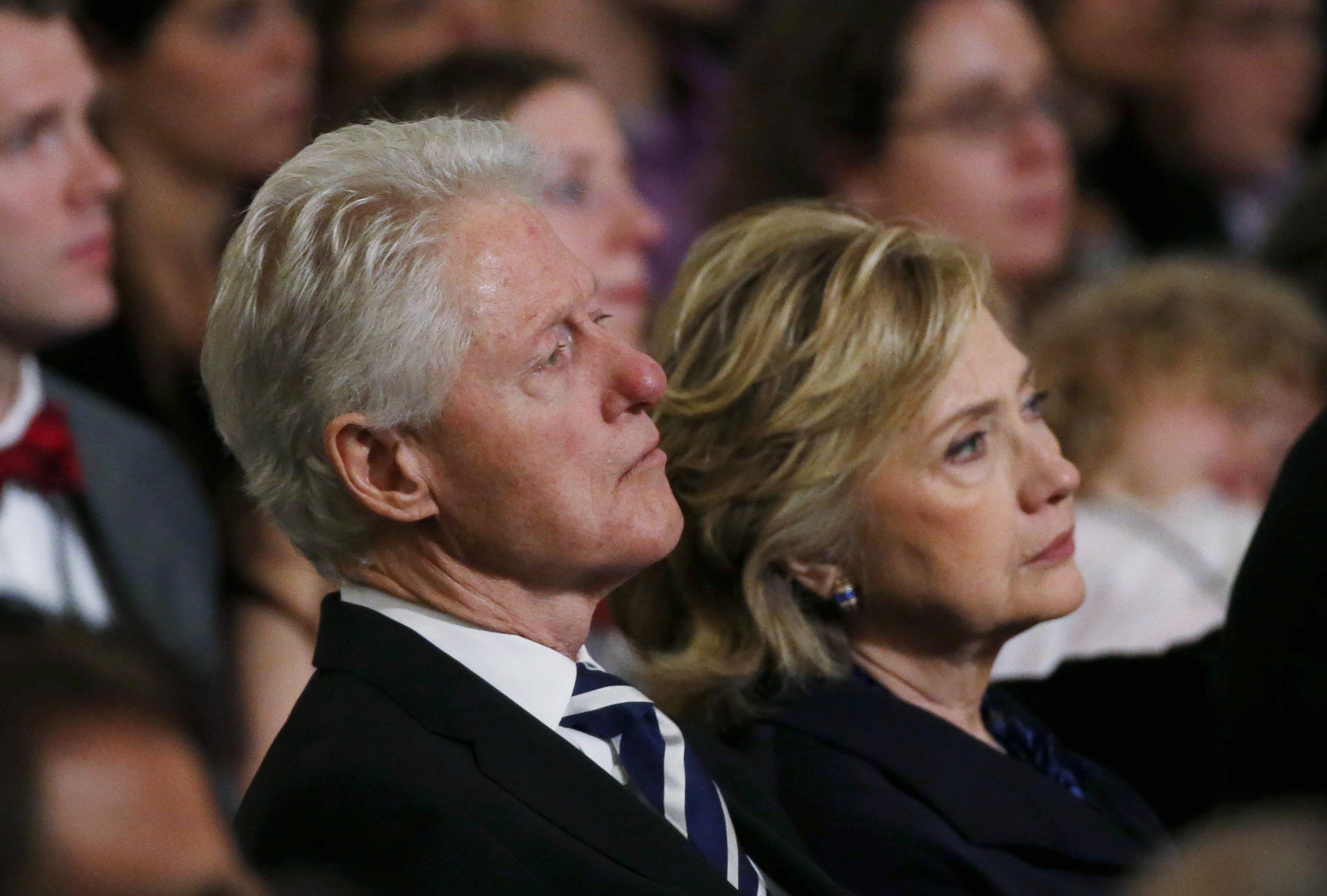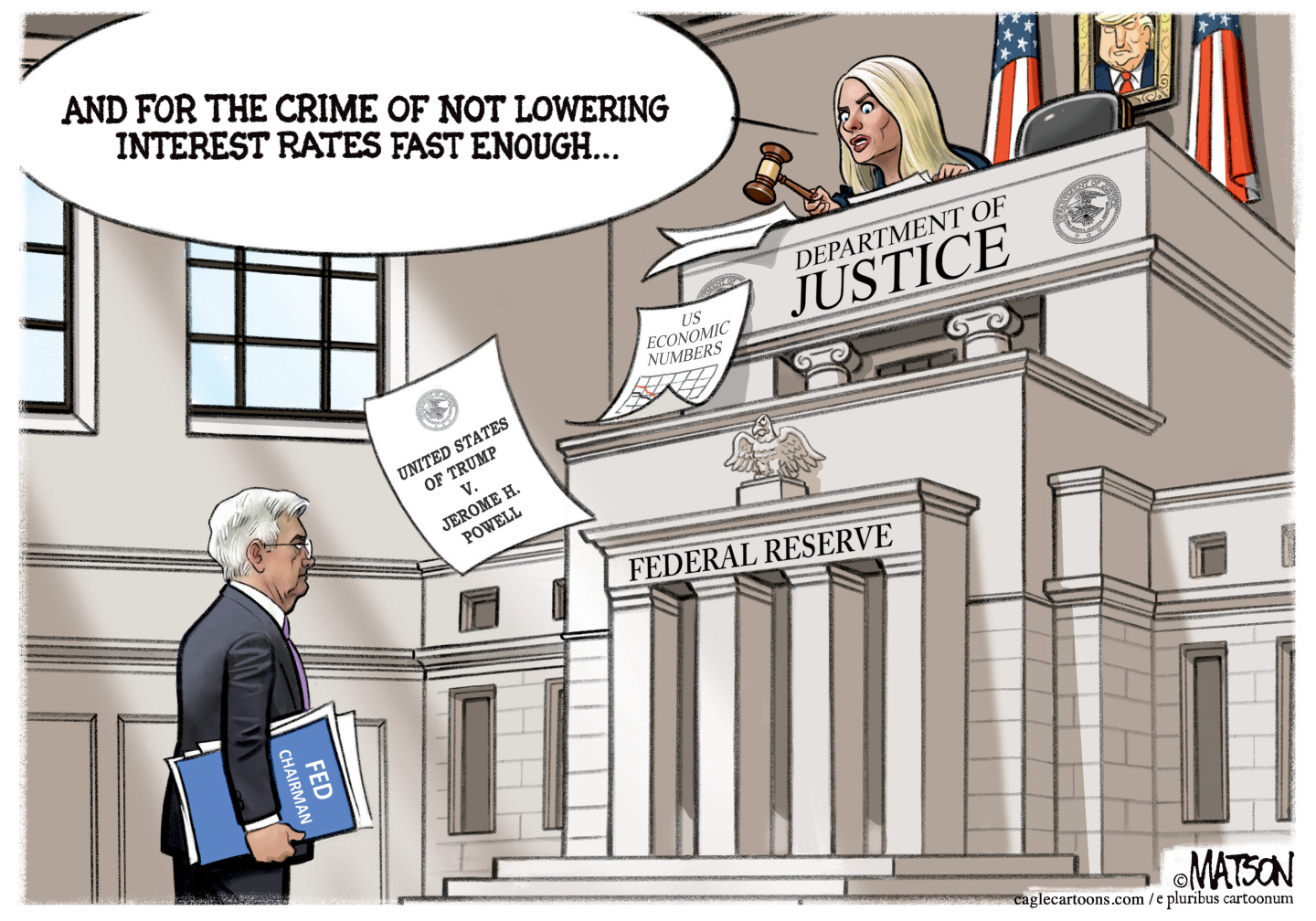What Clinton Cash and Deflategate have in common
Tons of smoke. But proof of a fire?


Conservative author Peter Schweizer's book Clinton Cash and the results of the NFL's "Deflategate" investigation were both released this week. You probably think they have nothing in common. But they do!
The Clinton book and Deflategate report both seem to have convinced most people who have read them — or at least paid attention to headlines based on them — that their targets are guilty. But neither, as critics point out, contains a "smoking gun" proving such guilt irrefutably.
Schweizer's book sets out to tell, as the subtitle puts it, "the untold story of how and why foreign governments helped make Bill and Hillary Clinton rich." The Deflategate report by attorney Ted Wells attempts to get to the bottom of why the New England Patriots used underinflated footballs in the AFC Championship Game, contrary to NFL rules.
The Week
Escape your echo chamber. Get the facts behind the news, plus analysis from multiple perspectives.

Sign up for The Week's Free Newsletters
From our morning news briefing to a weekly Good News Newsletter, get the best of The Week delivered directly to your inbox.
From our morning news briefing to a weekly Good News Newsletter, get the best of The Week delivered directly to your inbox.
Lots of people in the public and private sector have done business with the Clintons' charitable foundation, or paid Bill Clinton lavish speaking fees, and have gone on to get what they want from government entities with which the Clintons held sway, including the State Department when Hillary Clinton was secretary of state. This is in addition to revelations that Hillary Clinton used a private email account housed on a server under her control while conducting government business, at a minimum violating the State Department's best practices and potentially skirting public transparency requirements. She then wiped tens of thousands of emails.
If there's no fire, that's surely an awful lot of smoke. Several of the stories contained in Clinton Cash were re-reported and vetted by certifiably mainstream media outlets like The New York Times, The Washington Post, Reuters, Politico, Bloomberg, and The Wall Street Journal.
New York's liberal columnist Jonathan Chait summed it up well with this observation: "[T]he best-case scenario is bad enough: The Clintons have been disorganized and greedy." They were warned about the perceptions they were creating and the Obama administration asked them to behave differently, to no avail.
Some have begun to push back on this narrative — and not just full-time Clinton apologists. Slate's Jamelle Bouie pens one of the better defenses. He argues, "Schweizer makes several statements of fact — either through quotes or paraphrasing — but doesn't ever build connective tissue between them."
A free daily email with the biggest news stories of the day – and the best features from TheWeek.com
Bouie continues, "But for as much as he can make the Clintons look bad with lurid examples of iffy transactions — Chatwal, for instance, arranged a $450,000 speaking gig for Bill Clinton — Schweizer never gets around to giving definitive proof of illegal deals or unethical behavior." He concludes that all Schweizer has is "a compendium of bad decisions and gross behavior that a more sober-minded writer could have used to make a real hit on the Clintons."
The Wells Report paints a similar picture of wrongdoing — in this case by quarterback Tom Brady and two low-level Patriots employees — even if its direct assertions are much more equivocal and mealy-mouthed. (Guilt is "more probable than not," Brady was "at least generally aware," and so on.)
But for as much as the NFL could make Brady and the equipment guys look bad with lurid examples of iffy texts, Wells never gets around to giving definitive proof of illegal football manipulation. Indeed, the report states "the data did not provide a basis for us to determine with absolute certainty whether there was or was not tampering." It's all a compendium of bad decisions and gross behavior (like going to the bathroom with a bag of footballs).
It's unreasonable to expect either Wells or Schweizer to be able to prove their cases with absolute certainty given the scope of their projects and the resources available to them. We're not talking about criminal trials here. (Though the Clintons should be held to a higher standard than not breaking the law.)
Yet if you trust the Clintons more than you trust conservative authors or are more inclined to believe Brady than NFL lawyers who hire controversial consulting firms, then you might want to know more of the context surrounding the damning evidence. You might question whether it is damning, or even evidence, at all.
Cards on the table: I'm a Patriots fan, but not a fan of the Clintons. I know who I'm more inclined to give the benefit of the doubt, and fortunately I have (just barely) enough perspective to know that the stakes in presidential politics are vastly higher than in professional football.
So: I'm more skeptical of the Wells Report than Clinton Cash. But I'm not going to pretend I couldn't plausibly make the opposite case if my rooting interests were different.
W. James Antle III is the politics editor of the Washington Examiner, the former editor of The American Conservative, and author of Devouring Freedom: Can Big Government Ever Be Stopped?.
-
 Why Greenland’s natural resources are nearly impossible to mine
Why Greenland’s natural resources are nearly impossible to mineThe Explainer The country’s natural landscape makes the task extremely difficult
-
 The Week contest: Post-surgery Spanish
The Week contest: Post-surgery SpanishPuzzles and Quizzes
-
 Political cartoons for January 14
Political cartoons for January 14Cartoons Wednesday’s political cartoons include Jerome Powell's rap sheet, holiday bill blues, and more
-
 The billionaires’ wealth tax: a catastrophe for California?
The billionaires’ wealth tax: a catastrophe for California?Talking Point Peter Thiel and Larry Page preparing to change state residency
-
 Bari Weiss’ ‘60 Minutes’ scandal is about more than one report
Bari Weiss’ ‘60 Minutes’ scandal is about more than one reportIN THE SPOTLIGHT By blocking an approved segment on a controversial prison holding US deportees in El Salvador, the editor-in-chief of CBS News has become the main story
-
 Has Zohran Mamdani shown the Democrats how to win again?
Has Zohran Mamdani shown the Democrats how to win again?Today’s Big Question New York City mayoral election touted as victory for left-wing populists but moderate centrist wins elsewhere present more complex path for Democratic Party
-
 Millions turn out for anti-Trump ‘No Kings’ rallies
Millions turn out for anti-Trump ‘No Kings’ ralliesSpeed Read An estimated 7 million people participated, 2 million more than at the first ‘No Kings’ protest in June
-
 Ghislaine Maxwell: angling for a Trump pardon
Ghislaine Maxwell: angling for a Trump pardonTalking Point Convicted sex trafficker's testimony could shed new light on president's links to Jeffrey Epstein
-
 The last words and final moments of 40 presidents
The last words and final moments of 40 presidentsThe Explainer Some are eloquent quotes worthy of the holders of the highest office in the nation, and others... aren't
-
 The JFK files: the truth at last?
The JFK files: the truth at last?In The Spotlight More than 64,000 previously classified documents relating the 1963 assassination of John F. Kennedy have been released by the Trump administration
-
 'Seriously, not literally': how should the world take Donald Trump?
'Seriously, not literally': how should the world take Donald Trump?Today's big question White House rhetoric and reality look likely to become increasingly blurred
